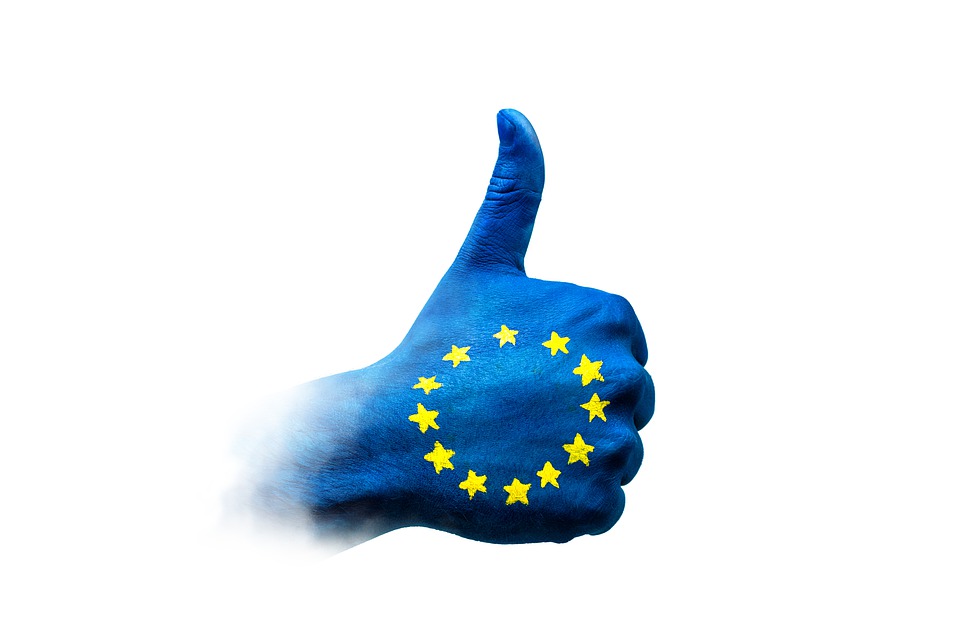Is democracy in crisis? Recent developments in Eastern Europe, Britain’s Brexit and Trump’s America suggest that it is. Common explanations have located the rise of populism in a potent mix of globalization and financial crisis. Yet two eminent political scientists, Francis Fukuyama and Dominique Moïsi, point instead to a crisis of identity. Speaking in Amsterdam, the American and the Frenchman highlighted the European Union as a source of both hope and fear for the future of liberal democracy.
Fukuyama admits that identity is the ‘master concept’ of his most recent book of the same name. In it, he argues that the rise of populism is linked to a crisis of identity rather than economics. It is linked to a rising need for recognition by many of those affected by globalization. The desire to be recognised is universal. Yet, right now, invisibility is pervasive in society, he maintains. ‘The older white working class are feeling particularly invisible right now’. Ironically, both capitalist and Marxist schools of thought closely associate recognition with material wealth. Fukuyama accuses both Marxists and contemporary free market economists of viewing the world in ‘the same narrow-minded, materialistic way – they ignore the power of ideas’.
Macron is too bright, too young and accomplished, too handsome. – Moïsi
For his part, Moïsi locates the roots of populism in three key words: Anger, Humiliation and Nostalgia. Similarly Fukuyama, argues that the crisis we now face in Europe is one of both ethics and identity. The anger at what he calls the elite, is in part a product of the ‘explosion in inequality, real or perceived’. This in turn is a result of the humiliation which is reflected in movements like the gilles jaunes in France. A little humiliation can be a good thing, Moïsi says, as it can inspire one to greater things. However too much humiliation is very bad. For those in Europe who feel they have been ‘left behind’ by everything that is young, new and global, their sense of humiliation is overwhelming. Someone like Macron, increases this sense of humiliation simply by being what he is – too bright, too young and accomplished, too handsome.
If one is confident, an individual has no problem being French or British or Bulgarian and European. He blames his generation for failing what he terms, ‘the interrogation of identity’. ‘We have failed to teach a pedagogy of freedom and peace to the new Europeans’. And in spite of the optimism of Chancellor Kohl of Germany in the 1990’s, that the Erasmus programme, together with a combination of Italian pizza and German beer would prove sufficient to create a generation of young Europeans, it has not proved quite so simple. Those who have always lived in peace and freedom have great difficulty in truly understanding the value of these things.
‘European citizenship is only metaphoric.’ – Fukuyama
Both writers agree that the nation state has traditionally provided the framework around which institutions of a liberal democracy can cohere and gain credibility. However, nationalism as a source of identity can and has caused problems. It is frequently linked to notions of ethnic and/or religious superiority. Moïsi makes reference to Brexit as a prime example of this phenomenon. ‘Brexit is an example of a country shooting itself in the foot in the most dramatic but illuminating manner.’ For Fukuyama, the European Union is a union of ideas/ideals more than anything else. As such it may well represent the beginnings of his own Utopian vision for the end of history – an international community, regulated by global structures based on the rule of law. Yet he points to the fact that power continues to sit at the national level in the EU. As such, ‘European citizenship is only metaphoric’.
But the European Union has the potential to represent the sorts of ideas/ideals around which people can come together, in order to create the kind of broad, inclusive identities that Fukuyama lauds. Often accused of being merely a technocracy, its liberal institutions and ideals are designed to help protect the right of individuals to choose. The right to choose, Fukuyama maintains, lies at the heart of human dignity. Indeed democracy itself ‘is based on a recognition of this basic human dignity.’ Thus, notions of identity should be centered on ideas rather than ethnicity, religion or material wealth. However, he makes it clear that this process begins with a willingness to listen to and accept opposing views. He suggests that metropolitan elites are just as guilty of this as their less educated counter-parts.
‘Will Europe be at the table or on the menu?’ – Moïsi
Even among the younger generations, Dominique Moïsi highlights the lack of enthusiasm and appetite for the European Union. They are far more engaged in the fate of the kingdom in Game of Thrones he notes with typical irony. But Moïsi is unequivocal in his response; ‘what is at stake, is the future of democracy’. In a world where there is less America and more China and Russia, the question for Europe is: ‘will it be at the table or on the menu?’. For the first time in centuries, the Western model is being challenged by China’s alternative. It is a model that does not include liberal democracy. For Moïsi, China forces Europeans to defend what it is they truly believe in, unlike other threats such as migration. It forces one to be excellent.
Perhaps the key issue here is trust. As Fukuyama points out, the trust of voters can never be assumed, based simply on the moral superiority of liberalism. The ongoing democracy protests in Hong Kong, highlight similar issues, on the opposite side of the world. A sense of identity, separate from mainland China, is underpinned by a growing lack of trust in the city’s leadership. The outcome is difficult to foretell but as Moïsi said, ‘One cannot play with history lightly’.

